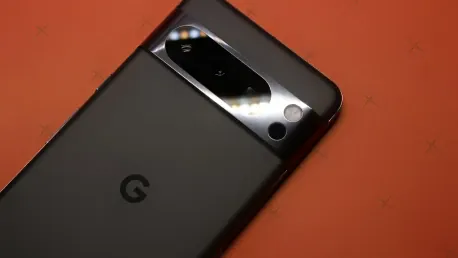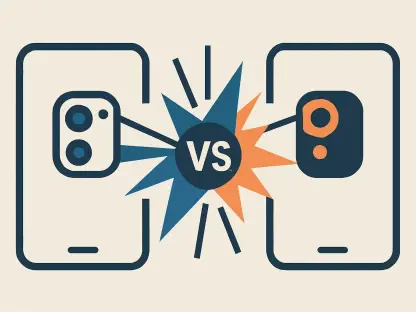Google’s recent decision to cancel its Pixel Tablet project has sparked significant discussion within the tech community. Despite the launch of its first iteration, the Pixel Tablet 3’s cancellation reflects a broader strategy shift and raises questions about Google’s future in hardware development.
Historical Context of Google’s Product Cancellations
Pattern of Discontinuing Underperforming Projects
Google has a history of discontinuing projects that fail to capture substantial market share. Prominent examples such as Google Glass and Google Plus illustrate how the company is quick to pull the plug on initiatives that don’t meet their ambitious expectations. The Pixel Tablet’s inability to deliver a high-end Android experience, especially in comparison to established market leaders like Samsung and Apple, is central to understanding why the project was ultimately shelved. Consumer interest in the Pixel Tablet never reached the critical mass necessary for sustained success, echoing similar fates faced by other Google products that didn’t manage to carve out a significant niche.
This pattern of discontinuing underperforming projects can be seen as a pragmatic approach to product management, reflecting Google’s adaptability and focus on optimizing resource allocation. However, it also raises questions about the company’s long-term commitment to its hardware products, particularly when these ventures face initial market resistance. Inconsistent follow-through on hardware projects could eventually erode consumer trust, making it harder for Google to establish itself as a serious competitor in this space.
Market Performance and Expectations
The market performance of the Pixel Tablet was significantly lackluster despite Google’s concerted efforts to position it as a high-end option within the saturated tablet market. Compared to the rigorous standards set by competitors like Apple and Samsung, the Pixel Tablet fell short in areas critical to consumers, such as performance, user experience, and app ecosystem support. This underperformance is a crucial factor that led to the project’s cancellation, underscoring the high stakes and competitive nature of the hardware market.
Google’s challenge to meet consumer expectations becomes evident when placed against tablet giants that have mature ecosystems and loyal customer bases. The Pixel Tablet’s struggle to differentiate itself and provide compelling reasons for consumers to switch from established brands highlights the inherent difficulties new entrants face in mature markets. Failing to meet these expectations not only diminishes short-term sales prospects but also hampers the product’s ability to gain long-term traction. Consequently, Google’s decision to cease further development of the Pixel Tablet signals a recalibration of priorities aimed at addressing these competitive pressures more effectively.
Strategic Allocation of Resources
Focus on Unified Operating System
The cancellation of Pixel Tablet 3, rather than Pixel Tablet 2, notably indicates a strategic realignment of Google’s focus towards future projects that promise greater cohesion and market impact. Speculations suggest that Google is concentrating its resources on developing a unified operating system that amalgamates Android and Chrome OS. This strategic pivot aims to create a cohesive and more competitive platform that seamlessly integrates the strengths of both systems, offering users a more comprehensive and versatile experience.
In focusing on a unified OS, Google appears intent on addressing fragmentation issues that have historically plagued its platforms. By reallocating resources from underperforming products like the Pixel Tablet, the company can sharpen its focus on creating an innovative operating system that may redefine how users interact with their devices. This move speaks to a calculated effort to leverage Google’s software expertise in crafting a next-generation OS that competes directly with Apple’s robust ecosystem.
Implications for Future Development
If the unified OS is poised for success, Google must channel its efforts towards perfecting this new platform. Discontinuing the Pixel Tablet allows the company to consolidate resources and expertise, ensuring that the unified operating system can emerge as a formidable competitor in the tech landscape. This strategic shift could result in the development of new devices that exploit the combined capabilities of Android and Chrome OS, offering unique functionalities and enhanced user experiences.
The potential merger of these operating systems promises to open up avenues for innovative hardware designs and new form factors that previously seemed unattainable. This pivot might lead Google to explore device categories that can fully harness the integrated capabilities of a unified OS, thus expanding their hardware portfolio in novel directions. By focusing on such forward-looking projects, Google may better align itself with the evolving demands of tech-savvy consumers seeking seamless interoperability and advanced features across their devices.
Regulatory Challenges and DOJ Scrutiny
Antitrust Concerns and DOJ Actions
Emerging challenges from the Department of Justice (DOJ) introduce a considerable layer of complexity to Google’s strategic plans. Recently, the DOJ has raised antitrust concerns, calling for Google to divest from Chrome OS. This proposal casts significant doubt over the future viability of the unified operating system project, further complicating an already intricate scenario. In August, a federal judge ruled that Google was functioning as a monopoly, leveraging its dominance in the search market to stifle competition and maintain an unfair advantage.
These antitrust actions place Google under intense scrutiny, with the potential for far-reaching consequences should the DOJ’s recommendations be implemented. The threat of being forced to break up its operations looms large, potentially disrupting Google’s ability to innovate within the hardware sector. Such regulatory pressures necessitate strategic reassessments within Google to navigate the legal landscape while striving to maintain a competitive edge and market presence.
Potential Impact of Regulatory Actions
The DOJ’s proposal to break up the company was met with substantial opposition from Google, which argues that such measures would harm the user experience and stifle innovation, particularly affecting free services and the development of new products. Should Google be compelled to divest from Chrome OS, it would face a fragmented market, leading to potential confusion and disrupted experiences for consumers who rely on affordable and user-friendly Chromebooks. This scenario could also alter the broader market dynamics, presenting opportunities for other players to enter the space while leaving Google to recalibrate its strategy amidst heightened competition.
The potential fragmentation resulting from these regulatory actions could prompt Google to reconsider its hardware strategy once more. Without Chrome OS under its belt, the company might pivot to different technological approaches or even explore partnerships to maintain its foothold in the evolving tech landscape. For consumers, the ramifications of such a fragmentation could include shifts in product offerings, changes in user experiences, and an altered competitive landscape where new and perhaps unforeseen market leaders may emerge.
Broader Implications for Google’s Hardware Strategy
Shifting Focus in Hardware Development
Under the dual pressures of regulatory actions and technological aspirations, Google might be compelled to fundamentally reconsider its hardware strategy. Rather than directly competing with giants like Apple and Samsung, the company could gravitate towards creating devices that uniquely capitalize on the functionalities available with its upcoming unified operating system. This strategic shift could result in the development and marketing of pioneering new form factors, focusing on enriching user experiences and leveraging Google’s overarching software and service strengths.
This adjustment in strategy might also see Google placing greater emphasis on integrating software and hardware in ways that set their products apart from competitors. The focus could shift towards specialized devices that offer distinct advantages derived from Google’s comprehensive understanding of user data, AI capabilities, and cloud services. By adopting this approach, Google could carve out a unique niche in the tech industry, making innovative contributions that distinguish its offerings from both current and future competition.
Market Dynamics and Consumer Impact
Google’s recent decision to cancel its Pixel Tablet project has sparked significant discussion within the tech community. This development has come as a surprise to many, given that Google had only recently launched the first iteration of the Pixel Tablet. The cancellation of the Pixel Tablet 3 highlights a broader strategic shift within the company and raises questions about its future direction in hardware development. Many enthusiasts and analysts were eagerly anticipating the advancements that the Pixel Tablet 3 would bring, especially considering the positive reception of previous Google hardware like the Pixel smartphones and Nest devices. Google’s hardware endeavors have often been seen as a way to showcase its software capabilities and seamlessly integrate its services into users’ lives. With the Pixel Tablet 3’s unexpected cancellation, there is growing speculation about whether Google is reassessing its role in the competitive tech hardware market or refocusing its efforts on more profitable and innovative avenues. The decision also leaves consumers and developers in a state of uncertainty, wondering what Google’s next steps will be in the constantly evolving landscape of technology.









